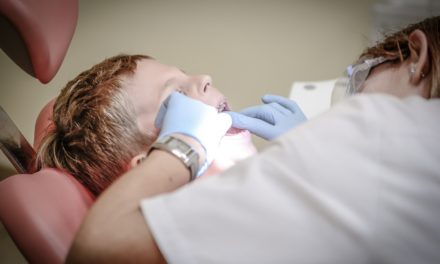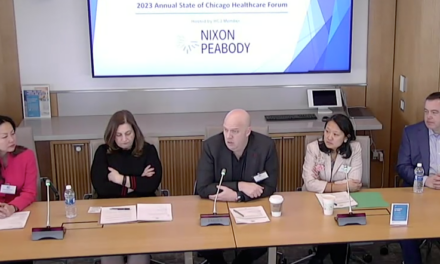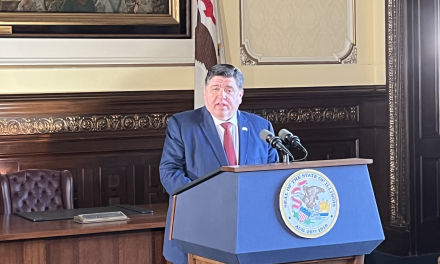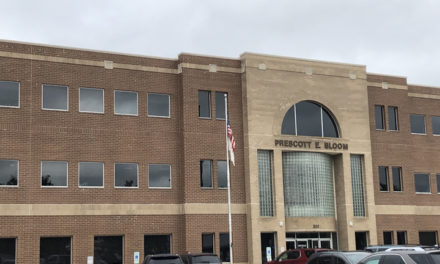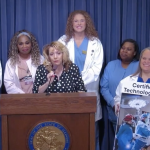
HFS’ Laura Phelan on Illinois’ Medicaid expansion for new mothers
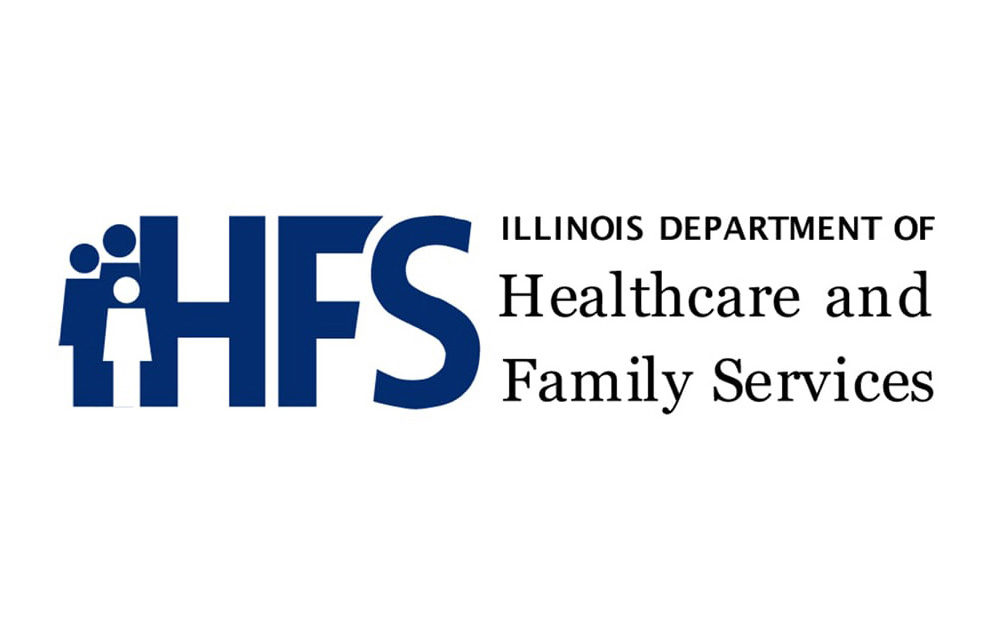
Illinois became the first state this week to expand Medicaid coverage for new mothers for up to 12 months.
The Centers for Medicare and Medicaid Services’ approval came after a “long-standing” request by the state to extend coverage beyond 60 days postpartum, said Laura Phelan, policy director at the Department of Healthcare and Family Services.
Phelan spoke with Health News Illinois this week about the new policy.
Edited excerpts are below.
HNI: Why did HFS pursue this?
LP: The Department of Public Health released in October 2018 the first Illinois maternal morbidity and mortality report, which included a series of findings related to maternal morbidity and mortality. Some national data, but also a lot of data that was specific to Illinois. And within that report, they recommended extending Medicaid coverage to women for 12 months postpartum. And so the following spring legislative session in 2019, the General Assembly took up the issue and passed a bill that the governor signed, having Medicaid make this extension of coverage, with federal approval. And so later that year, we submitted a formal 1115 waiver request to federal CMS to waive federal regulations that provided coverage through 60 days postpartum and to change that to 12 months postpartum. And so that is the request. It was a bit of a long-standing request, but we’re very grateful to our federal partners that they approved it this week. And it will really allow us to make an impact in improving health outcomes.
HNI: Now that it has been approved by the federal government, what’s next for implementing it?
LP: The effective date was the date they released it, so Monday. But the women covered under the 1115 waiver approval are currently covered under the COVID-19 public health emergency’s Maintenance of Effort provision, which keeps individuals in their coverage rather than dropping them. And so what this waiver will do is when the COVID-19 public health emergency ends, rather than all of the individuals losing their coverage, if they’re within their 12-month postpartum period, they will stay covered. And they will stay covered through the end of the 12 months postpartum.
One thing that is really important is the continuous eligibility piece. So that means that we won’t be checking if their income or circumstances changed. They will automatically get the extension to 12 months postpartum, and the goal with that extension is to better coordinate their care and to have continuity of care. So that, as health issues come up that need to be addressed, they can be addressed by their care teams. And it’s not occurring during a period of time where they have a gap in coverage, if you’re uninsured or you’re newly insured and need to find a care team to talk to. That continuity of coverage piece, that’s where we’re going to be working to improve health outcomes and address some racial disparities and health outcomes that exist today.
HNI: How many individuals will the extension impact?
LP: What this waiver is doing is allowing coverage to be extended for women between 139 percent and 213 percent of the federal poverty level. In some cases, you might also see that range as 133 percent to 208 percent. There’s a 5 percent income disregard, which is why you might see a 5 percent difference in those numbers. But using the income disregard today, pregnant women are covered up to 213 percent of the federal poverty level for 60 days postpartum. And after those 60 days, if they are at 138 percent of the federal poverty level or below, they continue to qualify as a parent. If they’re between 139 percent and 213 percent of the Federal Poverty Level, that’s when they’re falling off. And so it will keep all of those women on and through the continuous eligibility provision, will ensure regardless of income that if the delivery occurred while they had Medicaid coverage, they’ll get to keep their coverage to 12 months postpartum. I believe the 139 percent to 213 percent number was 2,500 individuals. So we’re projecting approximately 2,500 women between 139 percent and 213 percent of the federal poverty level, annually, would receive coverage. And then like I mentioned, everyone is helped by that continuous eligibility provision.
HNI: How will the funding work?
LP: The 1115 waiver has a budget neutrality component to it. So that is one thing that we’ll be looking at and evaluating. But we also believe that keeping women covered allows for better health outcomes for not only the women, but for their babies, who are covered by us. And kids have a higher income standard. They go up to 318 percent of the federal poverty level in Illinois. So women with coverage are more likely to take their children to get immunizations and bring them to doctor’s appointments. It also benefits the baby and the family if she has serious health conditions, chronic conditions, mental health or substance use disorder. Those issues are addressed so that she’s able to take care of the child. But it’s something that we’ll be monitoring. But Illinois hasn’t done it before, and other states haven’t done it before, so it will be part of the evaluation.
HNI: How will this address maternal mortality?
LP: This waiver extension is a piece of the administration’s ongoing work to end healthcare disparities for communities of color. The 2018 (IDPH) report found that non-Hispanic Black women are six times as likely to die of a pregnancy-related condition as non-Hispanic white women. The Illinois Department of Public Health also found that poor continuity of care and lack of care coordination were factors contributing to death in 93 percent of preventable pregnancy-related deaths during the late postpartum period. So the 61 days to 364 days where they’re currently not covered, what we’ll be looking to do is, by giving them that continuity of care and using our Medicaid managed care coordination structure, we will be able to help women get the healthcare that they need when they need it during that postpartum period. There was an HHS data report that was cited along with the federal approval of our waiver … (that) showed that more than half of pregnant women in Medicaid experienced a coverage gap in the first six months postpartum. And that disruptions in Medicaid coverage often lead to periods of uninsurance, delayed care and less preventive care. Which, again, keeping them covered through 12 months postpartum allows us to make sure they get the care they need when they need it. There are also some conditions that are more likely to impact Black women like cardiomyopathy, for example. And that’s often not detectable at 60 days postpartum. And so a more limited or targeted waiver that requires a specific diagnosis at 60 days postpartum to continue coverage, that doesn’t address some of the primary causes leading to some of the disparities that we’re seeing that tend to show up like cardiomyopathy, Maybe that’s closer to six months. So the broad extension of coverage allows us an opportunity to provide care when it’s needed for conditions that you may not have been able to identify earlier on.





